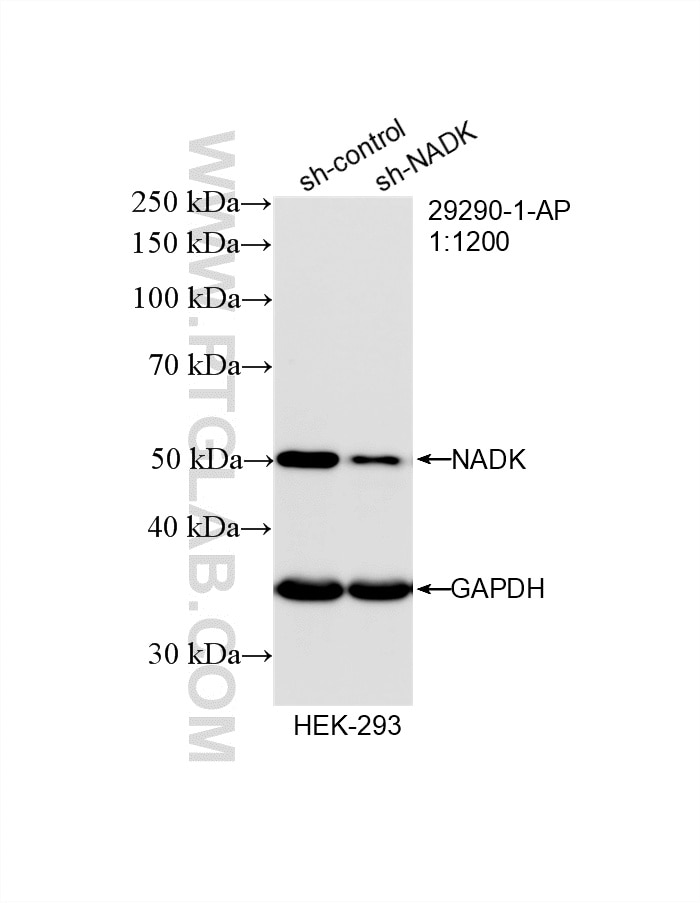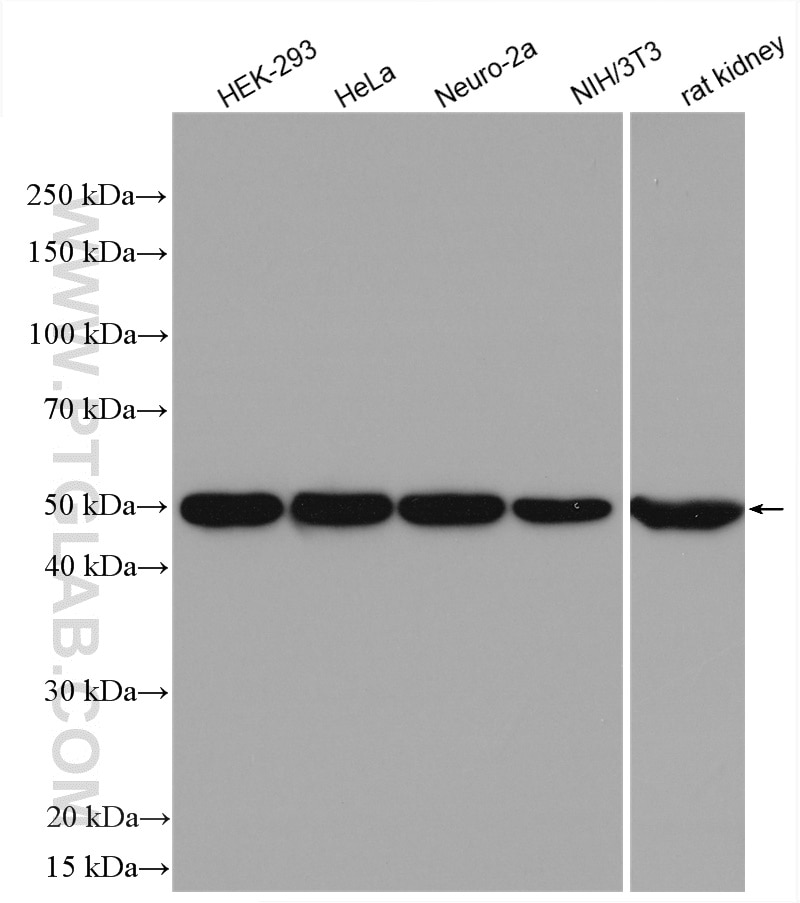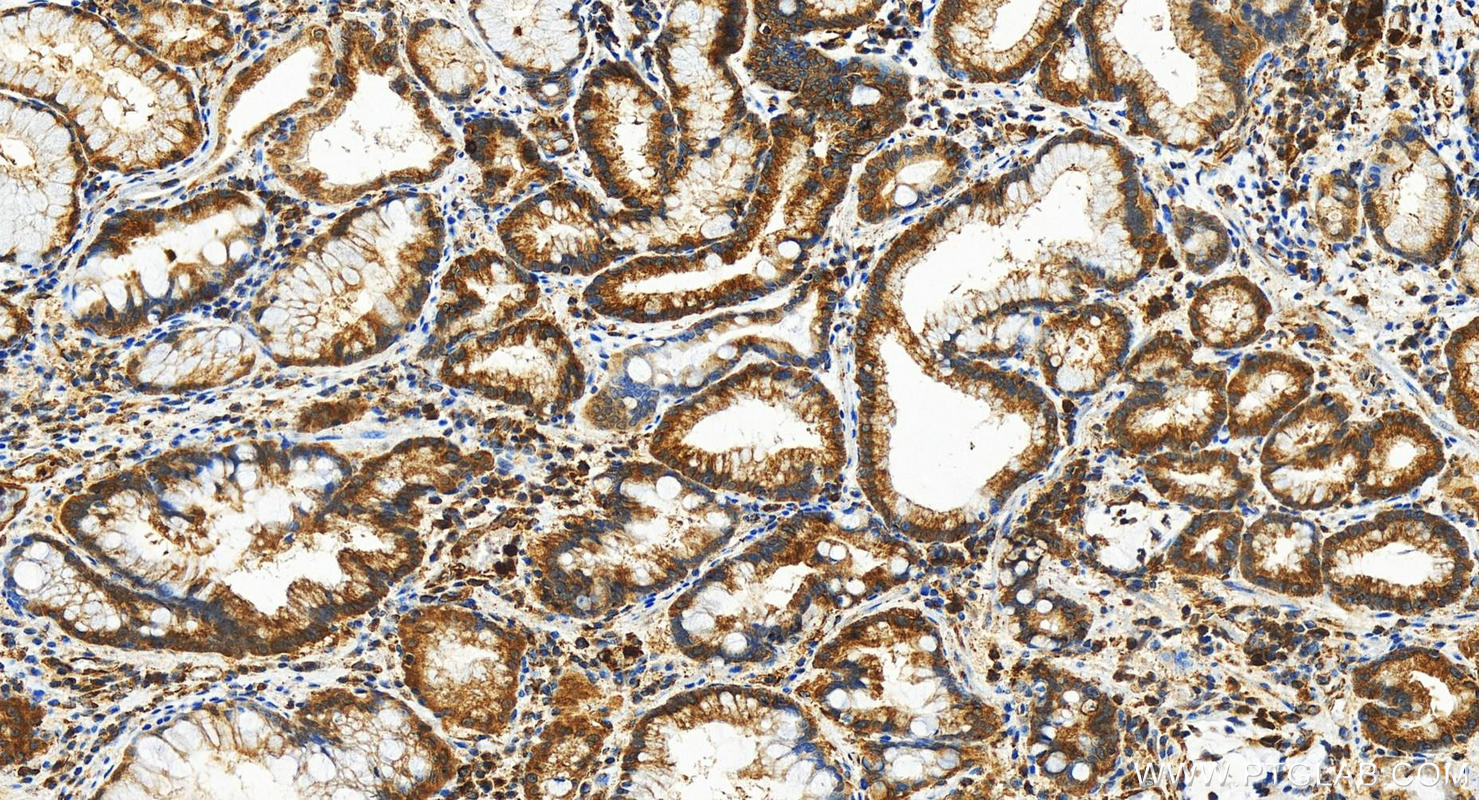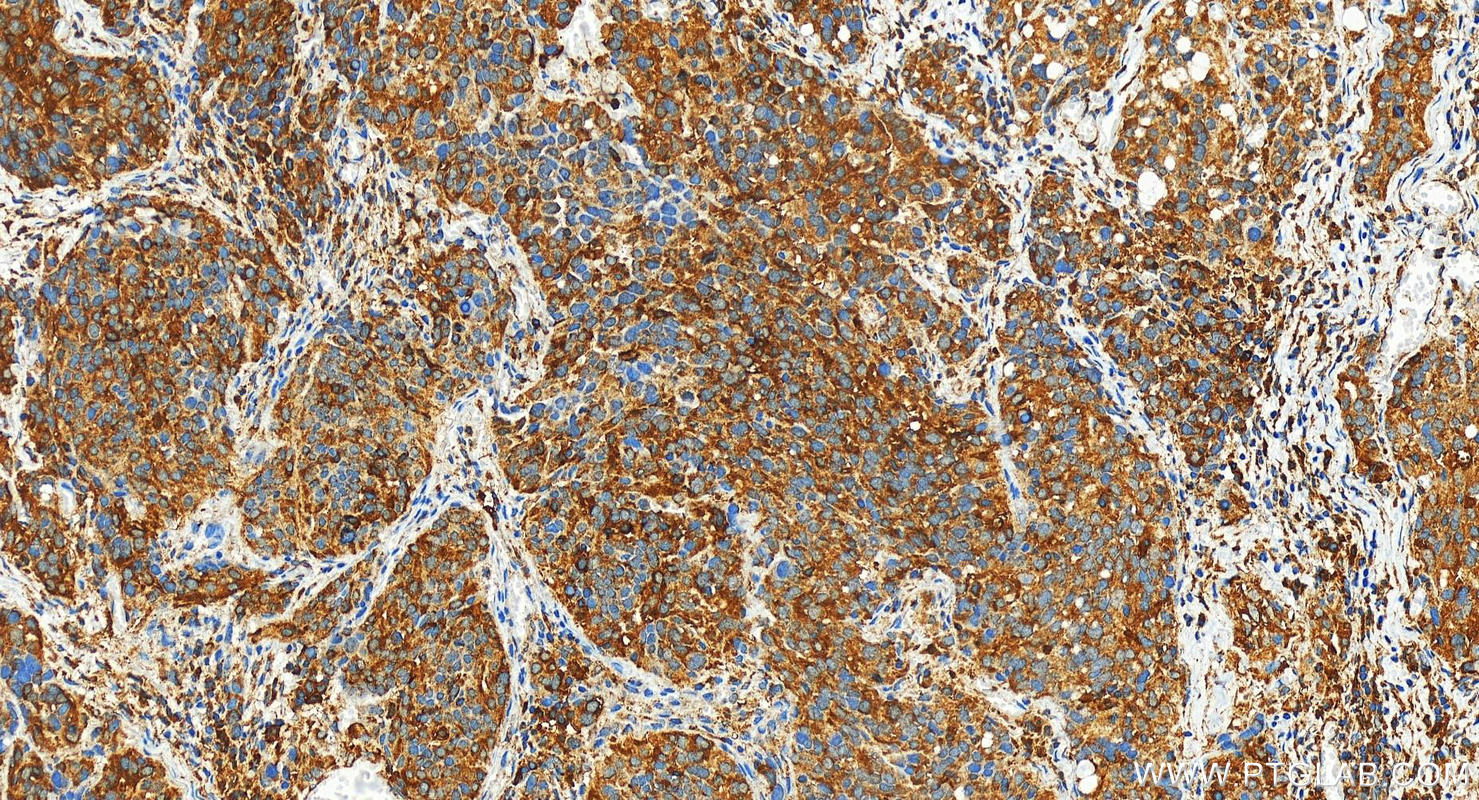- Phare
- Validé par KD/KO
Anticorps Polyclonal de lapin anti-NADK
NADK Polyclonal Antibody for WB, IHC, ELISA
Hôte / Isotype
Lapin / IgG
Réactivité testée
Humain, rat, souris
Applications
WB, IHC, ELISA
Conjugaison
Non conjugué
N° de cat : 29290-1-AP
Synonymes
Galerie de données de validation
Applications testées
| Résultats positifs en WB | cellules HEK-293, cellules HeLa, cellules Neuro-2a, cellules NIH/3T3, tissu rénal de rat |
| Résultats positifs en IHC | human ovary cancer tissue, tissu de cancer de l'estomac humain il est suggéré de démasquer l'antigène avec un tampon de TE buffer pH 9.0; (*) À défaut, 'le démasquage de l'antigène peut être 'effectué avec un tampon citrate pH 6,0. |
Dilution recommandée
| Application | Dilution |
|---|---|
| Western Blot (WB) | WB : 1:500-1:2000 |
| Immunohistochimie (IHC) | IHC : 1:50-1:500 |
| It is recommended that this reagent should be titrated in each testing system to obtain optimal results. | |
| Sample-dependent, check data in validation data gallery | |
Informations sur le produit
29290-1-AP cible NADK dans les applications de WB, IHC, ELISA et montre une réactivité avec des échantillons Humain, rat, souris
| Réactivité | Humain, rat, souris |
| Hôte / Isotype | Lapin / IgG |
| Clonalité | Polyclonal |
| Type | Anticorps |
| Immunogène | NADK Protéine recombinante Ag30982 |
| Nom complet | NAD kinase |
| Masse moléculaire calculée | 49 kDa |
| Poids moléculaire observé | 49 kDa |
| Numéro d’acquisition GenBank | BC001709 |
| Symbole du gène | NADK |
| Identification du gène (NCBI) | 65220 |
| Conjugaison | Non conjugué |
| Forme | Liquide |
| Méthode de purification | Purification par affinité contre l'antigène |
| Tampon de stockage | PBS with 0.02% sodium azide and 50% glycerol |
| Conditions de stockage | Stocker à -20°C. Stable pendant un an après l'expédition. L'aliquotage n'est pas nécessaire pour le stockage à -20oC Les 20ul contiennent 0,1% de BSA. |
Informations générales
NAD kinase (NADK) is the sole NADP+-biosynthetic enzyme that catalyzes phosphorylation of NAD+ to yield NADP+ using ATP as a phosphoryl donor, and thus, plays a vital role in the cell and represents a potentially powerful antimicrobial drug target (PMID:21526340). It belongs to the NAD kinase family. NADK has 3 isoforms with the molecular mass of 49, 63 and 46 kDa. The catalytically active human NADK is a homotetramer (PMID:11594753).
Protocole
| Product Specific Protocols | |
|---|---|
| WB protocol for NADK antibody 29290-1-AP | Download protocol |
| IHC protocol for NADK antibody 29290-1-AP | Download protocol |
| Standard Protocols | |
|---|---|
| Click here to view our Standard Protocols |





